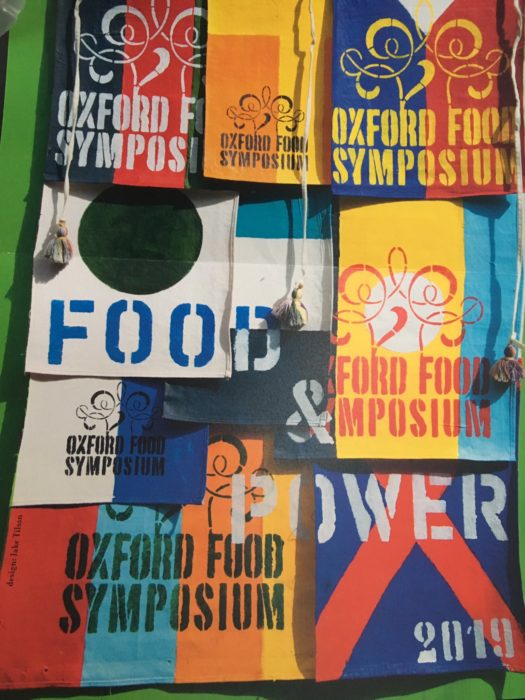1st August 2019 London,UK
Food and Power

The Oxford Food Symposium has not always held an obvious link to foreign policy, but diplomacy was there at its conception. It was co-founded by a diplomat named Alan Davidson, whose Foreign Office career ended as Ambassador to Laos in the early 1970s. It was while on a posting to Tunisia that Davidson, frustrated at the lack of a decent book on the local seafood, embarked on a parallel career as a food writer, with Seafish of Tunisia and the Central Mediterranean. Food guru Elizabeth David took the book under her wing, or perhaps fin, and it reappeared in expanded form as a Penguin publication with the snappier title Mediterranean Seafood.
Following his retirement from the Foreign Office, Davidson spent an academic year at St Anthony’s Oxford in the late 1970s, conducting research on science in the kitchen from an historical perspective, a theme which some at the time regarded as not quite suitable for the illustrious university. Davidson convened a series of seminars as part of his fellowship year, sponsored by social historian Theodore Zeldin. These proved a great success, attracting and uniting academics from a host of different disciplines, and Davidson and Zeldin expanded the format into larger symposia, the first held in 1981.
Thus was born the Oxford Food Symposium, which has evolved into a major annual fixture in the now much busier academic culinary calendar. Since 2003, it has been underpinned by a charitable trust. The Symposium, which has moved to the 1960s Arne Jacobsen-designed St Catherine’s College, takes on each year a different food-related theme, from food and language to offal.

The theme for 2019 was Food and Power, bringing together an eclectic mix of academics, food writers and chefs, from some twenty-five countries. Every dimension of culinary power was explored. Nutritional scientist Marion Nestle dwelt on the challenges posed to healthy eating by a food system designed for profit, though ended her presentation on an optimistic note in flagging up indicators ranging from the increasing popularity of farmers’ markets in western cities to the improved quality of school meals as evidence that consumers are demanding healthier ingredients. Architect Carolyn Steel identified London’s easy access to navigable water, and thus its ability to draw on a wide geographical area for its food supply, as an important factor behind its different, less centralised, historical development to that of Paris. And Amanda Herbert, Associate Director of the Folger Institute, looked at artistic interpretations of the bitter history of sugar.
I was delighted to be able to present a paper at the Symposium, focusing on the soft power of food, and specifically on the use of “gastrodiplomacy” by the UK diplomatic network, both in promoting British food and drink and in showing an awareness of and respect for local cuisines.

And since soft power is based on a country’s attractiveness, and enriched by direct experience, the Oxford Food Symposium itself is an example of UK soft power: in bringing together for almost forty years a likeminded group of experts and enthusiasts from around the globe, building a durable network of friendships; a community. This kind of initiative sits entirely independent of government, and is all the richer for that. Though it is nice that diplomats are welcome to join in.